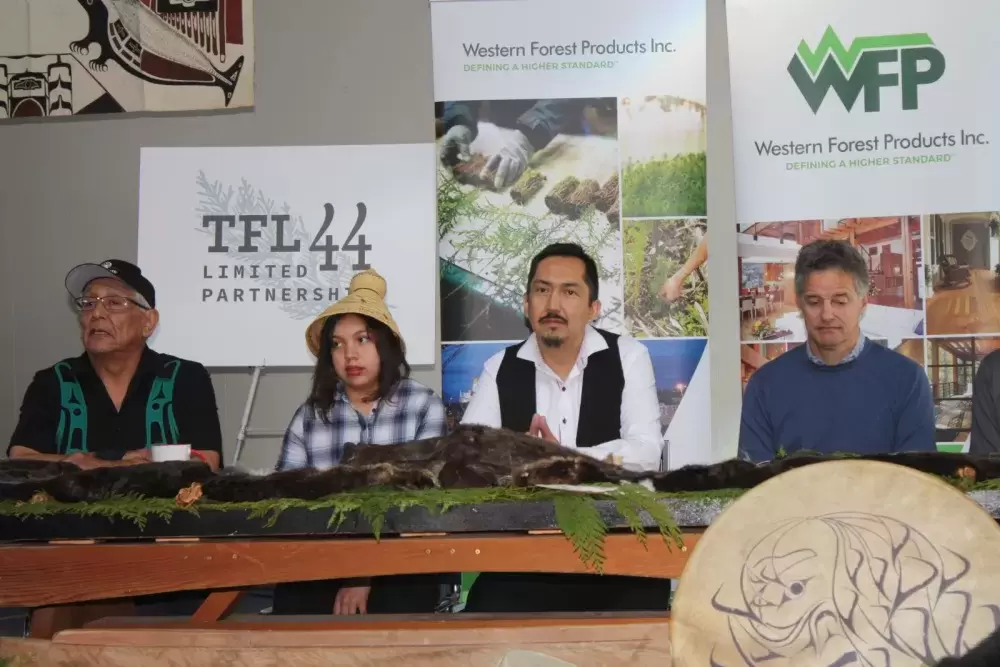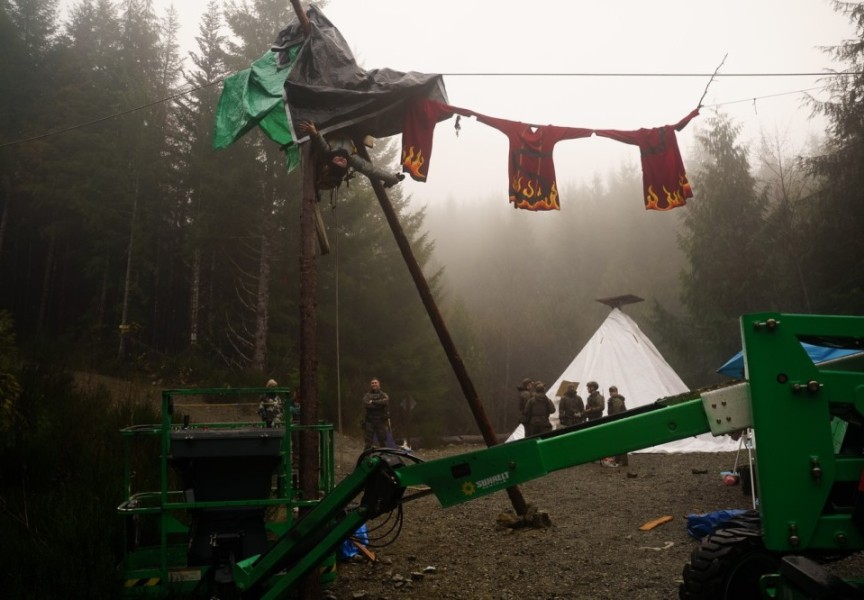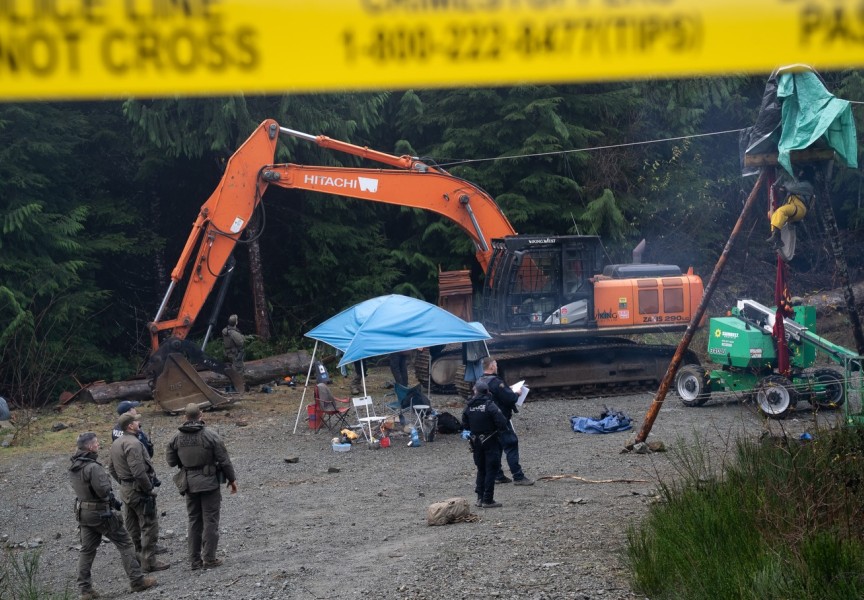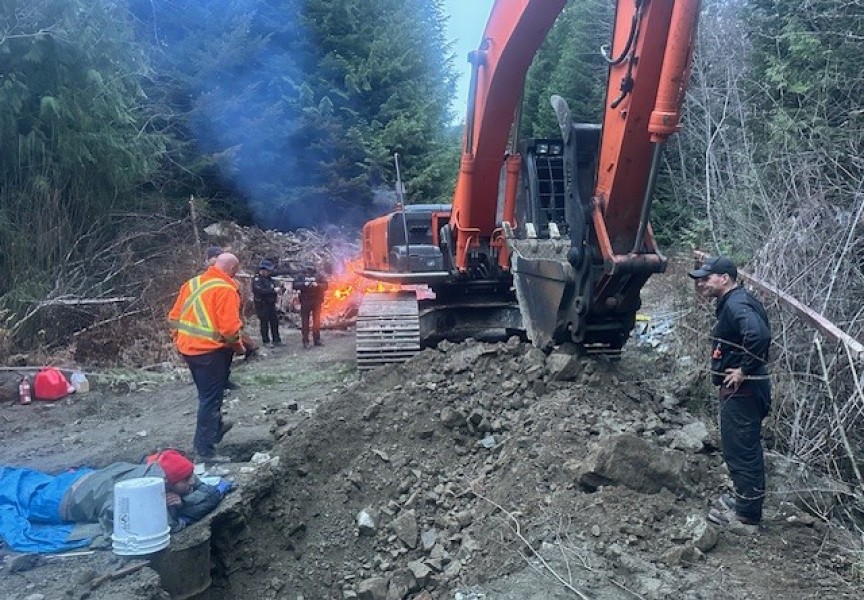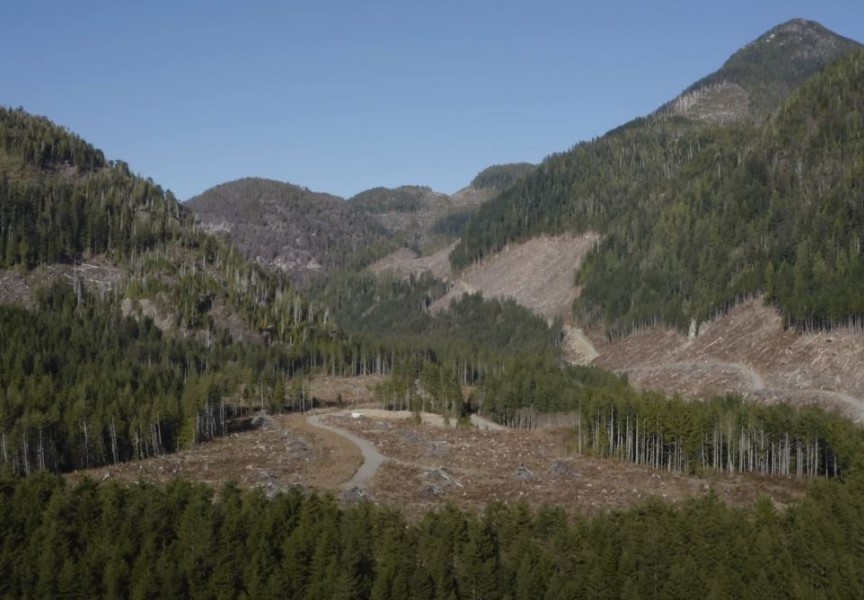More than 80 per cent of Huu-ay-aht citizens voted in favor of purchasing a portion of Tree Farm License 44 at a recent Special People’s Assembly held online.
The purchase will increase Huu-ay-aht’s interest in the TFL partnership, bringing opportunities to its citizens while protecting hahulthi for future generations.
On April 10 the Huu-ay-aht entertained the motion asking for support of a second investment of 28 per cent in TFL 44 LP, bringing the total investment to 35 per cent interest in the large section of Crown land south of Port Alberni.
Huu-ay-aht is the sole owner of Huumiis Ventures LP (Limited Partnership), the business entity partnered with Western Forest Products Inc.
On Dec. 14, 2018, Huumiis Ventures LP and Western Forest Products Inc. announced the creation of a newly formed limited partnership when Huumiis acquired a 7 per cent interest in TFL 44 LP. Western Forest Products owns the remaining 93 per cent.
Now, with the support of Huu-ay-aht citizens, the nation will increase their investment to 35 per cent, allowing the nation to have more say in what happens with regard to forestry in their traditional territory.
Chief Councillor Robert Dennis Sr. told Ha-Shilth-Sa that the nation has tracts of old growth that will be protected through management plans being developed in consultation with the people. In addition, there are 16 Huu-ay-aht working in forestry in their territory, including two contractors.
A slide presentation about forestry was made at the people’s assembly, featuring Huu-ay-aht members at work.
“The people saw the faces of our people at jobs – I think this was important for them to see,” said Dennis, adding that the imagery was likely a factor in the vote.
Huu-ay-aht’s latest venture in the TFL represents an investment of $22.4 million and is subject to financing and satisfaction of customary closing conditions, including third-party consents.
“We followed the guidance of our citizens and Ha’wiih Council, and we brought an opportunity to our citizens that we believe will honour our hahulthi and ensure it will support many generations to come,” said Tyee Ha’wilth +iis^in (Head Hereditary Chief Derek Peters).
Chief Dennis said that the nation is targeting 50 more jobs for Huu-ay-aht citizens in the next two years. Owning a controlling interest in TFL 44 in Huu-ay-aht hahulthi will allow the nation more direct say on how forestry is carried out.
“Our people have raised concerns about the protection of old growth, environmental issues and waste,” said Dennis.
In the past, Huu-ay-aht protected old growth forests through agreements like the one with the federal government affecting the Pacific Rim National Park, a portion of which runs through Huu-ay-aht territory. By agreeing to allow the national park in their territory, Huu-ay-aht was able to protect old growth forest in the vicinity of the park.
Through the development of their His^uk ma ca’wak Integrated Resource Management Plan, made with input from citizenship and Ha’wiih, these issues will be addressed.
“We can now agree to not only meet but exceed provincial standards where possible,” said Dennis.
For example, he added, if the provincial standard is to replant a cutblock with 12,000 trees, then can plant 13,000 to 14,000.
“If they ask for so many feet for a buffer zone by a waterway, we can increase that if we think it’s sensitive enough,” he said.
Dennis anticipates the resource management plan will be ready for citizenship approval in 2022.
“Further investment in TFL 44 LP enables us to participate in the forestry sector at a higher level than we have in the past,” said HFN Councilor Trevor Cootes. “It offers the potential to diversify and increase our revenue streams by seeking out new opportunities that will help us be more involved in various aspects of forestry and be more economically viable as a nation.”
Huu-ay-aht is only one of several First Nations whose hahulthi is included in TFL 44. Chief Dennis says this is an opportunity for the establishment of partnerships with neighboring First Nations.
The Huu-ay-aht have marked the 10th anniversary of the signing of the Maa-nulth treaty, affirming their rights to constitutionally-protected self-government as well as ownership, control and law-making authority over their lands and resources.
“Today, we moved forward with our modern mind, while honouring our ancient spirit, and we showed how resilient we are as a nation,” said Dennis. “This deal gives us more influence over what happens on our hahuuli and creates opportunities for our citizens and our nation, while focusing on being economically viable and environmentally sustainable.”
“The partnership between Western and Huu-ay-aht First Nations reflects a track record of finding common ground to achieve reconciliation and forestry revitalization and we look forward to continuing this work as we forge a new path together,” said Shannon Janzen, Vice President, Partnerships, Sustainability and Chief Forester, Western Forest Products.
Once the transaction is completed, the second stage will begin. Huu-ay-aht plans to acquire another 16 per cent interest in TFL 44 LP, bringing their total to 51 percent controlling interest.
“[I]f approved by our citizens, step two would bring Huumiis’ interests up to 51 per cent, giving it majority say into what happens in the tree farm license in our traditional territory,” said HFN Councilor John Jack.
The second stage investment is expected to be presented at an Huu-ay-aht People’s Assembly in early 2023.
In its first year of operations, TFL 44 LP reported positive safety and financial results for the 2020 fiscal year. Tyee Ha’wilth and TFL 44 LP Board Member Derek Peters attributed the success to the shared vision of forestry revitalization, reconciliation and creating a brighter future for generations to come.
“In order to accomplish this, we have focused on employment and training, strengthening the relationship with USW (United Steelworkers Union) and long-term resource management planning,” he said.
Besides direct forestry jobs, some Huu-ay-aht members are working on watershed renewal projects. According to Chief Dennis, some salmon habitat was damaged by logging practices of the past. Workers identify damaged habitat and riparian zones and are making reparations.
Work is being done on the Sarita River, Sugsaw Creek and Pacheena River and Chief Dennis is pleased to report that it is paying off as returning salmon have been counted in greater numbers. He went on to say that Western Forest Products agrees that the work is important and has committed $125,000 annually for the next three years to support the work.

